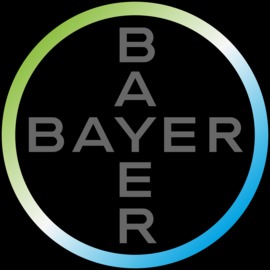Aspirin
Brand
The active ingredient of aspirin was first discovered from the bark of the willow tree in 1763 by Edward Stone of Wadham College, University of Oxford. He had discovered salicylic acid, the active ingredient of aspirin. Aspirin was first synthesized by Felix Hoffmann, a chemist with the German company Bayer in 1897. Aspirin is one of the most widely used medications in the world, with an estimated 40,000 tonnes of it being consumed each year. In countries where "Aspirin" is a registered trademark owned by Bayer, the generic term is acetylsalicylic acid. It is on the WHO Model List of Essential Medicines, the most important medications needed in a basic health system.
Aspirin, also known as acetylsalicylic acid, is a salicylate drug, often used as an analgesic to relieve minor aches and pains, as an antipyretic to reduce fever, and as an anti-inflammatory medication. Aspirin also has an antiplatelet effect by inhibiting the production of thromboxane, which under normal circumstances binds platelet molecules together to create a patch over damaged walls of blood vessels. Because the platelet patch can become too large and also block blood flow, locally and downstream, aspirin is also used long-term, at low doses, to help prevent heart attacks, strokes, and blood clot formation in people at high risk of developing blood clots. Also, low doses of aspirin may be given immediately after a heart attack to reduce the risk of another heart attack or of the death of cardiac tissue. Aspirin may be effective at preventing certain types of cancer, particularly colorectal cancer.
Subject ID: 15173
MoreThe active ingredient of aspirin was first discovered from the bark of the willow tree in 1763 by Edward Stone of Wadham College, University of Oxford. He had discovered salicylic acid, the active ingredient of aspirin. Aspirin was first synthesized by Felix Hoffmann, a chemist with the German company Bayer in 1897. Aspirin is one of the most widely used medications in the world, with an estimated 40,000 tonnes of it being consumed each year. In countries where "Aspirin" is a registered trademark owned by Bayer, the generic term is acetylsalicylic acid. It is on the WHO Model List of Essential Medicines, the most important medications needed in a basic health system.
Aspirin, also known as acetylsalicylic acid, is a salicylate drug, often used as an analgesic to relieve minor aches and pains, as an antipyretic to reduce fever, and as an anti-inflammatory medication. Aspirin also has an antiplatelet effect by inhibiting the production of thromboxane, which under normal circumstances binds platelet molecules together to create a patch over damaged walls of blood vessels. Because the platelet patch can become too large and also block blood flow, locally and downstream, aspirin is also used long-term, at low doses, to help prevent heart attacks, strokes, and blood clot formation in people at high risk of developing blood clots. Also, low doses of aspirin may be given immediately after a heart attack to reduce the risk of another heart attack or of the death of cardiac tissue. Aspirin may be effective at preventing certain types of cancer, particularly colorectal cancer.
Subject ID: 15173
Subject ID: 15173
